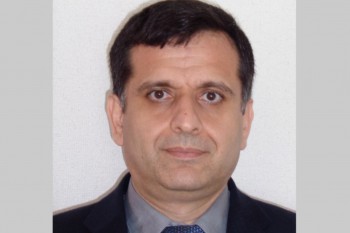Events

July 2021
H.E. Mr. Jalolov Mirzosharif, Ambassador of the Republic of Tajikistan
UPDATE: Dec 13, 2021
Potential for Investments and Business, such as Hydroelectric Power
—Next year marks 30 years of diplomatic relations between Japan and Tajikistan. How do you see the recent development of our bilateral relations?
Japan was among the first countries to officially recognize the independence of the Republic of Tajikistan on December 28, 1991. Diplomatic relations between the two countries were established on February 2, 1992, and next year, in 2022 will mark the 30th anniversary of the establishment of diplomatic relations between the Republic of Tajikistan and Japan.
Japan, as an advanced country in the world, takes a special place in the foreign policy of our country, and Tajikistan regards Japan as an important partner in the international arena from the beginning of its independence. During the years of relationship, we have shown keen interest in deepening the cooperation with Japan and are willing to further expand bilateral mutually beneficial cooperation at all levels. I am confident that in the nearest future through joint efforts, we will raise the multifaceted relations between our countries to a qualitatively new level and will enrich its content.
—Would you talk about the goals and objectives of Tajikistan’s National Development Strategy for the Period to 2030 (NDS 2030) ?
Under the able leadership of the President Emomali Rahmon, for the past 29 years the country has achieved remarkable results in social and economic aspects and to ensure further development of the country a new strategy was adopted. Briefly, the ultimate goal of the long-term development of Tajikistan is to increase the living standards of the population on the basis of sustainable economic development, which is characterized by the following strategic development objectives: 1) ensuring energy security; 2) development of communication possibilities of the country; 3) ensuring food security and nutrition; 4) the rapid industrialization of the country.
In the framework of the NDS-2030 there are three main tasks at the new stage of development: first, to achieve the level of socio-economic development comparable to countries of the middle segment with an average income; secondly, to ensure sustainability through the diversification and increasing competitiveness of the national economy and thirdly, to expand and strengthen the middle class.
It is worth to mention Japan’s continued contribution in implementation of Tajikistan NDS-2030. JICA as one of the key development partners of Tajikistan has adopted new JICA Country Analysis Paper (JCAP) which is in lined with the Tajikistan NDS-2030.
— In what fields do you expect Japanese companies’ cooperation and investment?
In my opinion, Tajikistan remains undiscovered to Japanese investors, while there are enormous potential for investment and doing business. There are possibility of the participation of Japanese companies and financial institutions in the implementation of joint projects, especially in trade, construction, transport and communications, mining, light and food industries, agriculture and tourism, as well as in the hydropower sector in mutually beneficial terms. It should be highlighted that the economic space of Tajikistan is always open to all investors who create jobs and provide services in the domestic and foreign markets; packages of economic and administrative benefits are provided for such investors.
—What do you think is necessary for the development of the entire Central Asian region, including neighboring Afghanistan?
Its geopolitical location at the crossroads of Eurasia and rich natural resources make Central Asia an important region in the international arena. Over the past years significant political and geo-economic developments are happening in the region that definitely will serve for further progress and prosperity of the entire Central Asia. In this vein, good-neighborliness and collective efforts for ensuring security and stability is of crucial importance in continues socio–economic development of the region, including neighboring Afghanistan.